healthcare
Latest
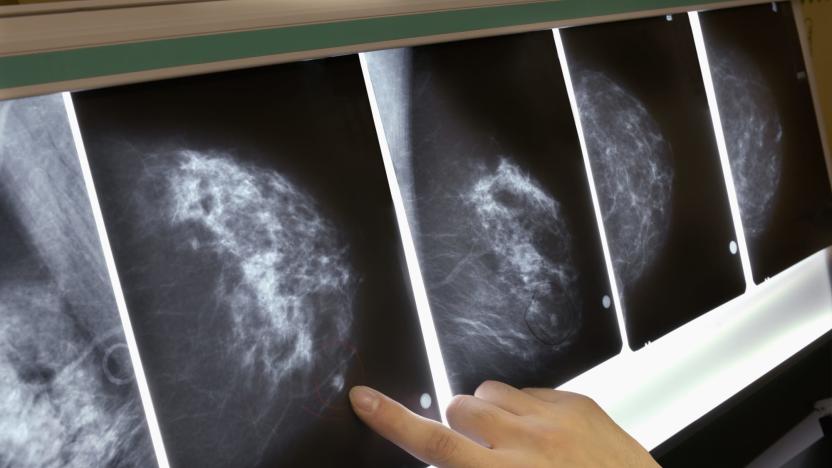
MIT AI model is 'significantly' better at predicting breast cancer
MIT researchers have invented a new AI-driven way of looking at mammograms that can help detect breast cancer in women up to five years in advance. A deep learning model created by a team of researchers from MIT's Computer Science and Artificial Intelligence Laboratory (CSAIL) and Massachusetts General Hospital can predict -- based on just a mammogram -- whether a woman will develop breast cancer in the future. And unlike older methods, it works just as well on black patients as it does on white patients.

Self-charging pacemakers are powered by patients' heartbeats
Millions of people around the world depend on pacemakers, defibrillators and other life-saving implantable devices. The problem is, their batteries need to be replaced every five to ten years, requiring surgery that's not only expensive, but carries the risk of complications and infections. Now, though, a team of scientists are developing an implantable biomedical device that can be recharged with energy from cardiac activity.
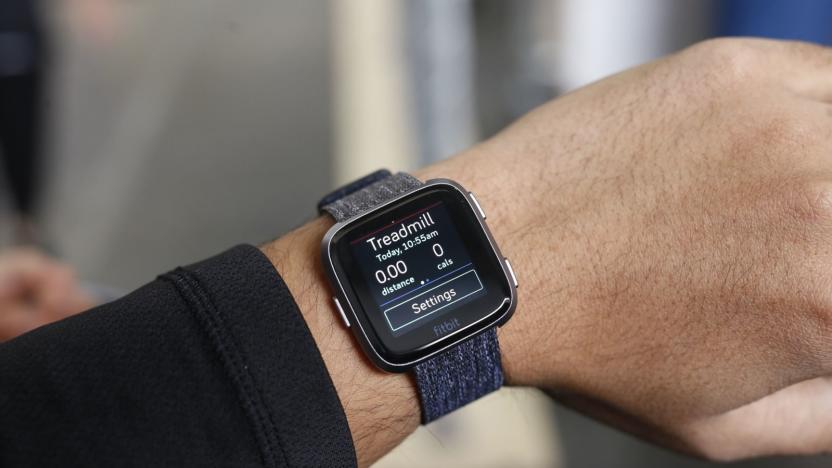
Fitbit users can share data with the National Institutes of Health
Fitbit is following a stellar 2018, which saw it bounce back to profit thanks in part to its Versa smartwatch, by diving even further into healthcare. As part of a new team-up with the National Institutes of Health (NIH), Fitbit is letting users sync their accounts with the All of Us research program: a US-wide initiative that wants to use data based on "individual differences in lifestyle, environment, and biology" to help treat and prevent diseases.
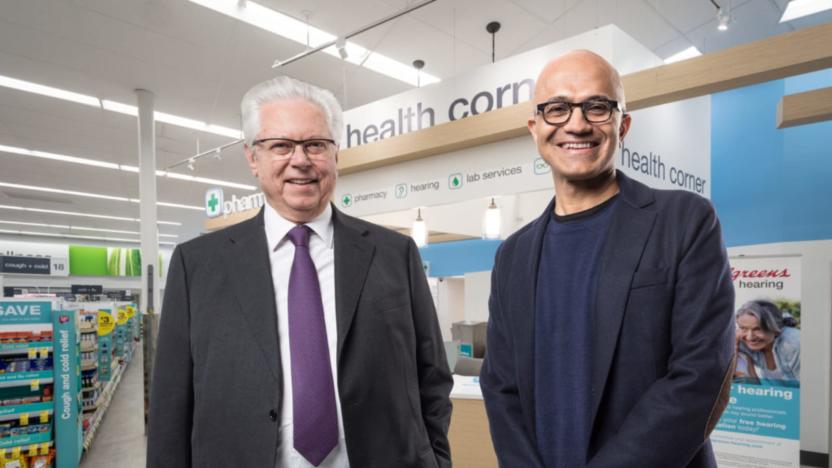
Microsoft and Walgreens join forces to 'transform healthcare'
Microsoft and Walgreens announced today that they will be teaming up to help improve health care. The companies have entered into a seven-year agreement during which Walgreens plans to migrate most of its IT infrastructure over to Microsoft's Azure cloud services. Microsoft is also providing Microsoft 365, a package of Windows 10 and Microsoft Office, to the 380,000 employees working at Walgreens stores around the world.
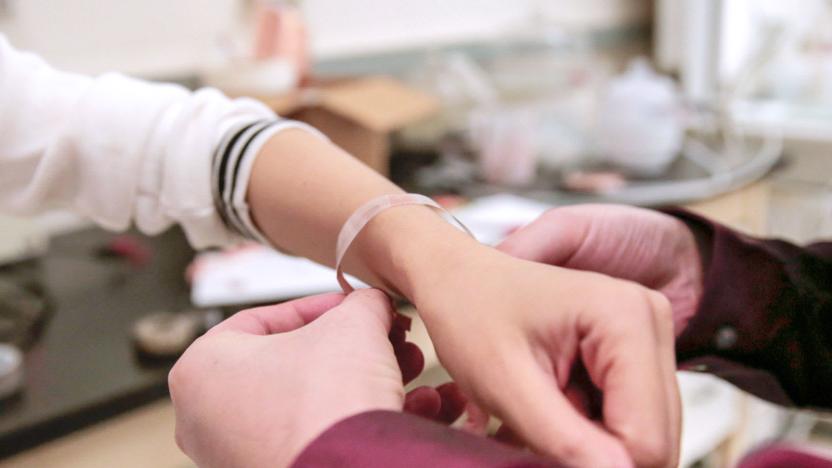
Self-powered electric bandages could speed up healing
Scientists have known for a long time that electricity can speed up healing for skin wounds, but the necessary power has usually tied patients to electrotherapy machines. In the future, though, it might not be much more complicated than treating a wound the old-fashioned way. Researchers in the US and China recently developed self-powered electric bandages that promise to be as easy to wear as ordinary dressings. The dressings include tiny electrodes powered by nanogenerators wrapped around your torso. All you have to do is breathe -- the movement of your ribcage activates the nanogenerators, sending low-intensity pulses to the wound area.
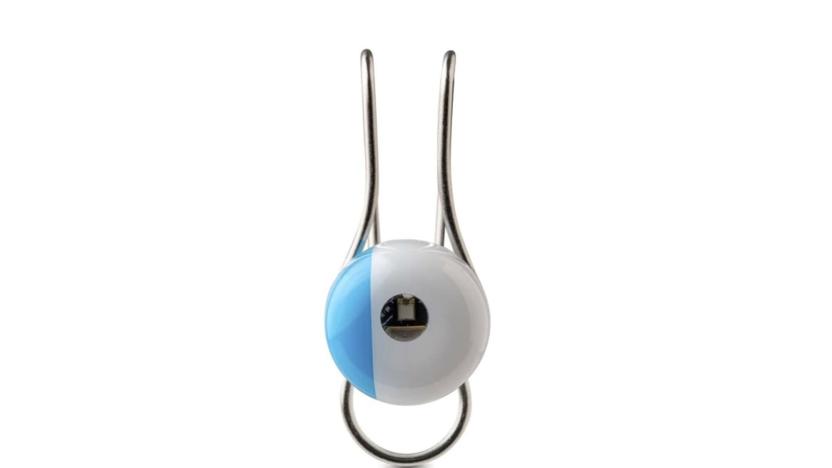
L'Oreal's wearable sensor tracks UV, pollen and pollution
L'Oreal isn't a brand you'd usually associate with medical technology, but over the past few years it's been making major inroads in skin protection innovation. There was My UV Patch, designed to inform wearers how their skin was being affected by the sun, and then UV Sense, a thumbnail-sized smart device that helped monitor sun exposure. Now, it's launching a battery-free wearable electronic that tracks your exposure to UV, pollution, pollen and humidity.

Income, tax and immigration data stolen in Healthcare.gov breach
The Centers for Medicare and Medicaid Services (CMS) now has details about the data stolen in the breach of Healthcare.gov that occurred last month. According to the government agency, a significant amount of personal information including partial Social Security numbers, tax information and immigration status was compromised in the breach. No financial information was stolen.

MIT's AI can identify breast cancer risk as reliably as a radiologist
Breast cancer affects one in eight women in the US. There are multiple factors involved in developing the disease, but one issue is dense breast tissue. Some 40 percent of US women have dense breast tissue, which alone increases the risk of breast cancer, and can make mammogram screening more difficult. Now, researchers from MIT and Massachusetts General Hospital (MGH) have developed an automated model that assesses dense breast tissue in mammograms as reliably as expert radiologists.

Electronic implant helps paralyzed people walk again
People paralyzed because of spinal cord injuries could one day be able to walk again, thanks to an implant that helps send "lost signals" from the brain to leg muscles. In Nature Medicine and the New England Journal of Medicine, research teams report that several patients -- all paralyzed from the waist down -- have been able to walk again after having the electrical patch fitted to their spinal cords. The approach is called epidural stimulation.

UNC Health Care offers free virtual appointments to hurricane victims
UNC Health Care announced that it will give anyone in North Carolina free access to its virtual care service through September 23rd as the state works to recover from Hurricane Florence. Via phone, tablet or computer, UNC Urgent Care 24/7 gives users virtual access to physicians who can then diagnose them, recommend treatments and prescribe medications. The healthcare group initially waived its virtual visit fees over the weekend, but it's extending the free access since many North Carolina residents have been displaced or can't travel because of the storm.
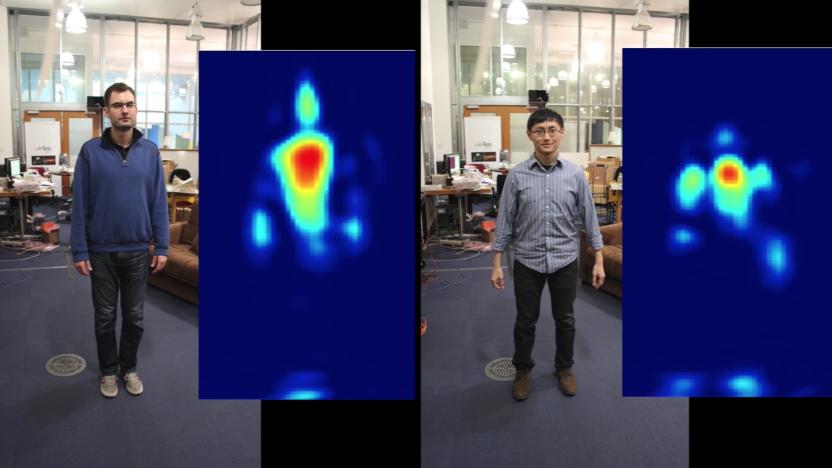
MIT built a health-tracking sensor that can ‘see’ through walls
An MIT professor has built a prototype device that can wirelessly track your health -- even through walls -- using a mix of radio signals and machine learning. Dina Katabi's gadget resembles a WiFi router and is designed to sit in your pad and monitor your breathing, heart rate, sleep, gait, and more as you go about your day. It's already doing that in over 200 homes around the US of both healthy people and those with Parkinson's, Alzheimer's, depression, and pulmonary diseases.

MIT's AI can tell if you're depressed from the way you talk
When it comes to identifying depression, doctors will traditionally ask patients specific questions about mood, mental illness, lifestyle and personal history, and use these answers to make a diagnosis. Now, researchers at MIT have created a model that can detect depression in people without needing responses to these specific questions, based instead on their natural conversational and writing style.

FDA says unapproved 'designer vagina' treatments are dangerous
Cellulite, thigh gaps, hip dips... women have no end of supposed physical "flaws" to worry about, and in recent times this remit has expanded to include the state of their vaginas, too. The internet is awash with products designed to improve a woman's "intimate health", but now the FDA has found that these treatments and procedures -- which claim to tighten muscles, increase lubrication, boost sexual pleasure or just "neaten things up" -- are not only unapproved, but are causing serious injuries to the women undertaking them.

NHS to let patients book GP appointments via an app
The NHS is one of the UK's greatest achievements, offering millions of people free healthcare that in other parts of the world costs an eye-watering sum. But it's not always easy for its patrons to access the care they need. Seeing a doctor often involves trudging down to the surgery first thing in the morning and waiting for hours, or joining a legion of other patients all attempting to call the surgery at the same time once it opens. So in a bid to eliminate these bottlenecks, the NHS is launching a new app that makes it easier for patients in England to access health services.
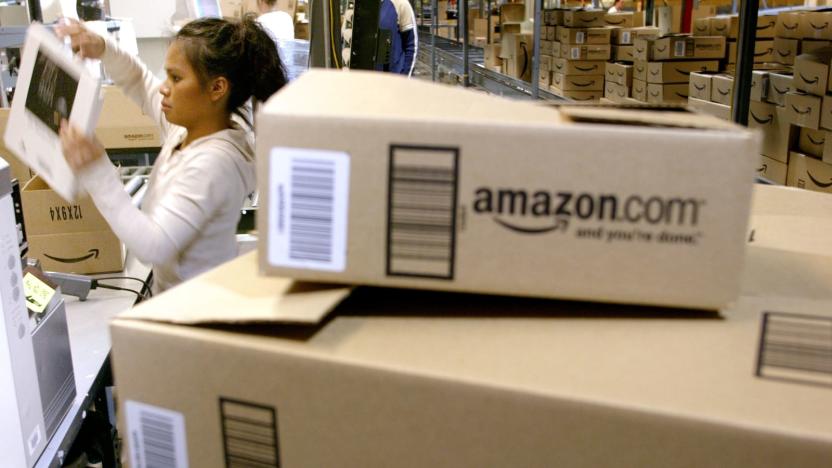
Amazon buys an online pharmacy to beef up its healthcare offering
Today, Amazon announced it is purchasing the online pharmacy PillPack. Pricing and the terms of the deal weren't disclosed in the release, but it does say that both companies expect that the deal will close sometime in the the second half of this year.
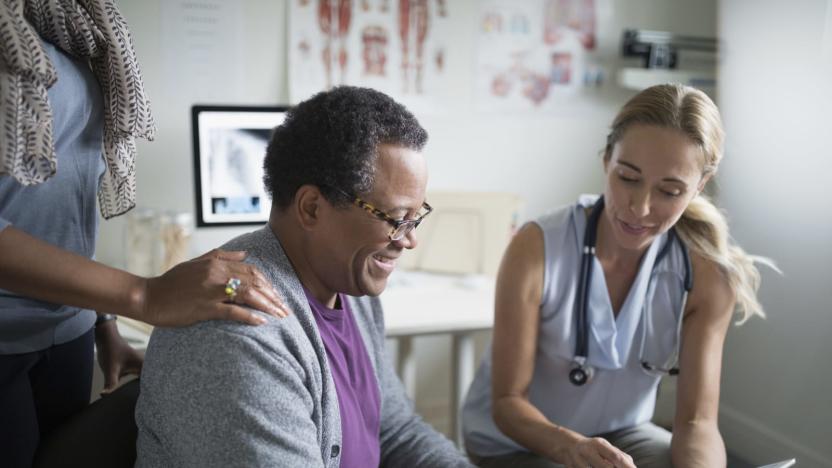
Microsoft creates a new team focused on healthcare
Thanks to Healthcare NExT (New Experiences and Technologies), for the last few years Microsoft has been working on healthcare innovation through AI and cloud computing. Now, the company is creating a new team that combines that work with a focus on partnerships and cross-company strategy for both healthcare and life sciences.
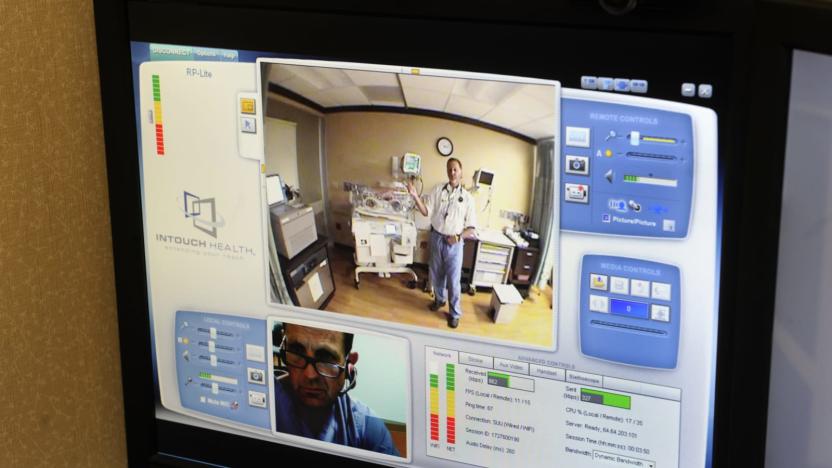
FCC gives remote health care a huge funding boost
Rural residents might soon have a better chance of seeing a doctor without venturing into the city. The FCC has raised the annual spending cap on the Rural Health Care Program by 43 percent to $571 million to tackle "funding shortages" driven by a spike in demand for remote medical services. To call this overdue would be an understatement -- the FCC noted that the previous cap ($400 million) had been established in 1997, when rural broadband was just a pipe dream. The boost reflects what that fund would be worth if it had accounted for inflation over the past 21 years.
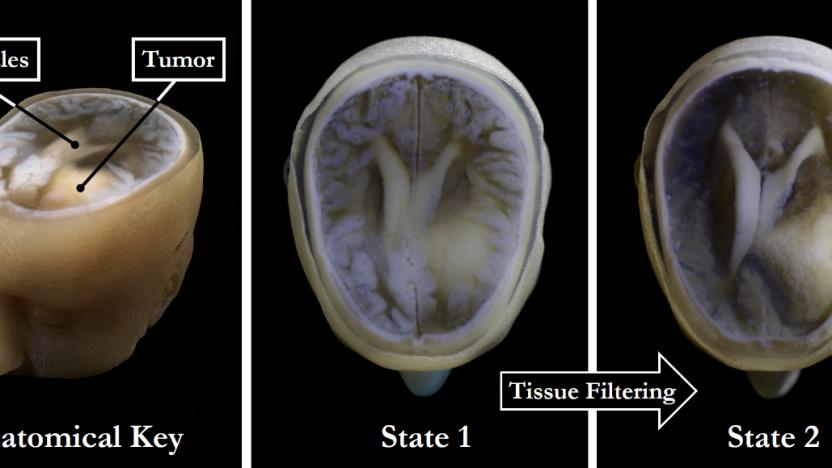
You'll soon be able to get a 3D printed model of your brain
There are almost limitless possibilities when it comes to 3D printing. Design your own color-changing jewelry? Fine. Fabricate your own drugs? No problem. Print an entire house in under 24 hours? Sure! Now, researchers have come up with a fast and easy way to print palm-sized models of individual human brains, presumably in a bid to advance scientific endeavours, but also because, well, that's pretty neat.

FDA approves AI tool for spotting wrist fractures
The FDA has been approving its fair share of AI-powered medical technology, but its latest might be particularly helpful if you ever have a nasty fall. The agency has greenlit Imagen's OsteoDetect, an AI-based diagnostic tool that can quickly detect distal radius wrist fractures. Its machine learning algorithm studies 2D X-rays for the telltale signs of fractures and marks them for closer study. It's not a replacement for doctors or clinicians, the FDA stressed -- rather, it's to improve their detection and get the right treatment that much sooner.
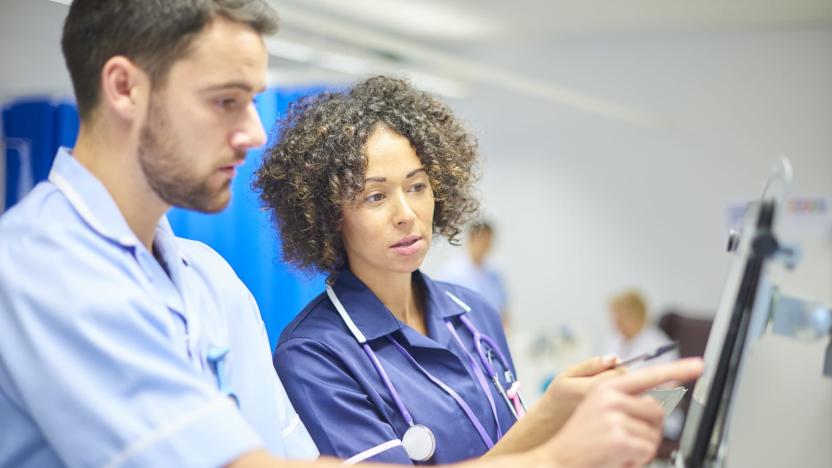
UK promises funding for AI-based early cancer detection
The UK is about to make a big bet on AI's ability to spot cancer. The Guardian has learned that Prime Minister Theresa May will commit "millions of pounds" in funding for research toward AI that can diagnose cancer and chronic diseases at an early stage. The technology could reduce "avoidable deaths," according to May's prepared speech, and is estimated to save as many as 22,000 lives per year by 2033. It would extend healthy living by another five years as of 2035. There is, however, an important catch.






